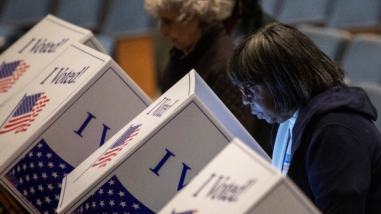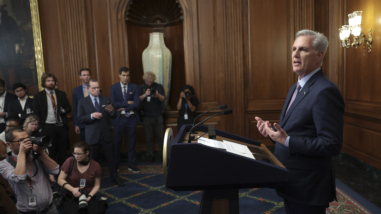If you’ve ever been the parent of a 16 year old who was eager to get a driver’s license and the keys to your car, you may or may not think this is a good idea: Lowering the voting age to 16.
That might sound far-etched, but it’s already happened in two small cities in Maryland for municipal elections, and in a number of other countries for national, regional, or local elections. The U.S. Constitution (since 1971) has set 18 as the minimum age for voting, but only in federal races.
In Scotland, 16- and 17-year-olds voted last September in the highly significant referendum on independence, whose outcome potentially had ramifications far beyond the borders of the United Kingdom. The First Minister of Scotland said after the election that “the initiative by which 16 and 17 year olds were able to vote has proved to be a resounding success. I suspect that no one will ever again dispute their right and ability to participate fully and responsibly in democratic elections.”
In Brazil, voting for anyone age 18 to 69 is mandatory, and for 16- and 17-year-olds it’s optional, kind of like a learner’s permit for driving. Denmark and Austria allow 16-year-olds to vote, as do five regions in Germany. In the U.K., Edward Millband pledged to lower the voting age to 16 if the Labour Party wins the next election.
Less radical than full suffrage at age 16 is “pre-registration,” which a few U.S. states have embraced. When the young person turns 18, the pre-registration automatically turns into enrollment. (FairVote, a grantee of the Hewlett Foundation’s Madison Initiative, has published a fact sheet about pre-registration.)
While it’s too soon and perhaps too small a sample to draw conclusions from Maryland cities Takoma Park, which has had one local election with the lower voting age, and Hyattsville, which passed its new law only in January, a few scholars have looked at under-18 voting overseas.
A team at the University of Edinburgh’s School of Social and Political Science published a study in December 2014 which considered its findings “optimistic.” It concluded: “Not only do we find little evidence to support arguments against lowering the voting age on the basis that this may have adverse effects. In addition we find that lowering the voting age may have positive impacts on political engagement, if certain structural provisions, mainly through schools, can be established.”
Similarly, scholars at the University of Vienna assessed whether under-18 voters have the ability and motivation to participate effectively in elections, and whether the quality of their votes is similar to that of older voters. “The results,” they concluded, “are encouraging for supporters of a lower voting age.”
Finally, a study of young voters in Denmark calls voting a “social act” and finds that voters still living with their parents are more likely to vote than those slightly older, in their early 20s, who live on their own.
This helps support the argument of advocates of under-18 voting that learning how to vote while still under the influence of parents and school establishes a baseline experience of responsible voting that is more likely to make that person a voter in the future.
With voter turnout continuing to decline, finding a way to turn the next generation into informed, engaged, regular voters should be a high priority for our country, schools, and parents. And starting voters earlier might be one way to get them to vote more often.



